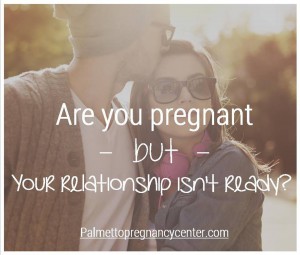Why Do They Abort?

The Cultural Trends Influencing Our Clients
A few weeks ago when I was counseling at my local center, a young African American woman in her early 20’s came into our center. After scanning her intake form, I noticed that she had marked “undecided” under the question that asked what her intentions were for her potential pregnancy.
As we began our counseling session, she shared with me that she had recently (a year prior) had an abortion. Gently, I asked her about her abortion and whether or not she felt like she had dealt with the emotions and trauma she had experienced. This led to a long and familiar conversation about why she had chosen to have her abortion. Here were some of her main reasons:
- She already had a young child.
- She felt like she couldn’t be a “perfect” mother like her friends and acquaintances on Instagram and Facebook.
- She felt like she must give every child the “American Childhood” (which included travel, the best toys, expensive clothes, a superior education, and anything else that they need or want) in order to be a good mother.
- Providing for her first child had been difficult.
As I began to explain God’s forgiveness and love to her, she broke down right in front of me. I went on to explain that our responsibility to our children is to love them, care for them, and to train them in the ways of the Lord. Giving them everything they want is not possible, not a requirement to be a good mother, and not good for them. I’m sure you have had many of the same experiences at your center.
I share this example, because my client was in a segment of women that are highly abortion vulnerable, but a segment that we do not normally consider.
We have known for some time that the majority of women who have abortions are either in their 20s and or poor, and this is still accurate. However, the next segment may be one you haven’t considered. The Guttmacher Institute reports that “six in 10 American women having an abortion already have a child, and more than three in 10 already have two or more children.”(Obstetrics & Gynecology) This statistic is shocking.
Why would women, like my client, who already know from experience the miracle of life they have growing inside them, abort?
 While the reasons women abort are situation specific, we can glean valuable insight from the cultural trends that were influencing my client and other women like her.
While the reasons women abort are situation specific, we can glean valuable insight from the cultural trends that were influencing my client and other women like her.
It started with her perception (taken from Instagram and other social media sites) that she must give her child a perfect life in order to be an “approved” mother. Maybe a lot of women who already have a child and still choose to abort feel the same way. Can’t we all fall into that trap of thinking and comparison?
Social media sites (such as Instagram or Facebook) create a beautifully filtered world out of normal everyday life. No harm in that, right? Wrong. It effectively makes us feel that our life is not as perfect, beautiful, or put together as the lives of our friends and acquaintances. We, as women, easily buy into the lie that our world must look like this unrealistic “instagramed” world that we see. What does this have to do with abortion? A lot. These young women are shaping their ideals and values based on the things they see on social media.
Is social media the enemy? No, of course not. It’s our sinful human hearts. However, it is a powerful tool that heavily influences this generation. Fortunately, we can use this same tool to counter the lies that are influencing women into believing that abortion is their best and only option. While this may seem like a daunting and impossible task, it is not as hard or as expensive as it seems.
Facebook gives you inexpensive avenues to reach these girls through your center’s Facebook page and through their advertising options. You can gain access into your clients world by placing strategic and engaging posts in her newsfeed. You can also create campaigns focused on driving clients to your website, installing your app, liking or commenting on your page, or building name/brand recognition. We call Facebook advertising “interruption marketing”. You place your message in the middle of her social media life. It is unavoidable. You are able to specify exactly who sees your ad. This means that you can create a target audience with a specific location, demographic, interests etc. The marketing campaigns you create on facebook are controlled completely by you and the amount of money you have to invest.
Here is an example.
 This is a post that I “boosted” for a pregnancy center a few weeks ago. The goal of this post was to create name recognition and drive potential clients to the center’s website. When you “boost” a post, you are paying for facebook to show your post to facebook users with the demographics and in the location you have chosen (not only the ones who have already “liked” your page).
This is a post that I “boosted” for a pregnancy center a few weeks ago. The goal of this post was to create name recognition and drive potential clients to the center’s website. When you “boost” a post, you are paying for facebook to show your post to facebook users with the demographics and in the location you have chosen (not only the ones who have already “liked” your page).
This center spent $10.00 to boost this post, and reached over 5,000 people with 53 clicks back to the center’s website. I share this example with you so that you realize that even a small amount of marketing money can greatly help your cause.
While Facebook is an inexpensive and effective marketing platform, it must be implemented strategically and consistently. Like any type of marketing campaign, understanding what motivates your client to action is critical. In addition, your graphics should be engaging and relevant to her life.
Jones RK and Kavanaugh ML, Changes in abortion rates between 2000 and 2008 and lifetime incidence of abortion, Obstetrics & Gynecology, 2011, 117(6):1358–1366.
Need Support?
If you are an existing customer and need support for your website, please submit a request from our ticket system.